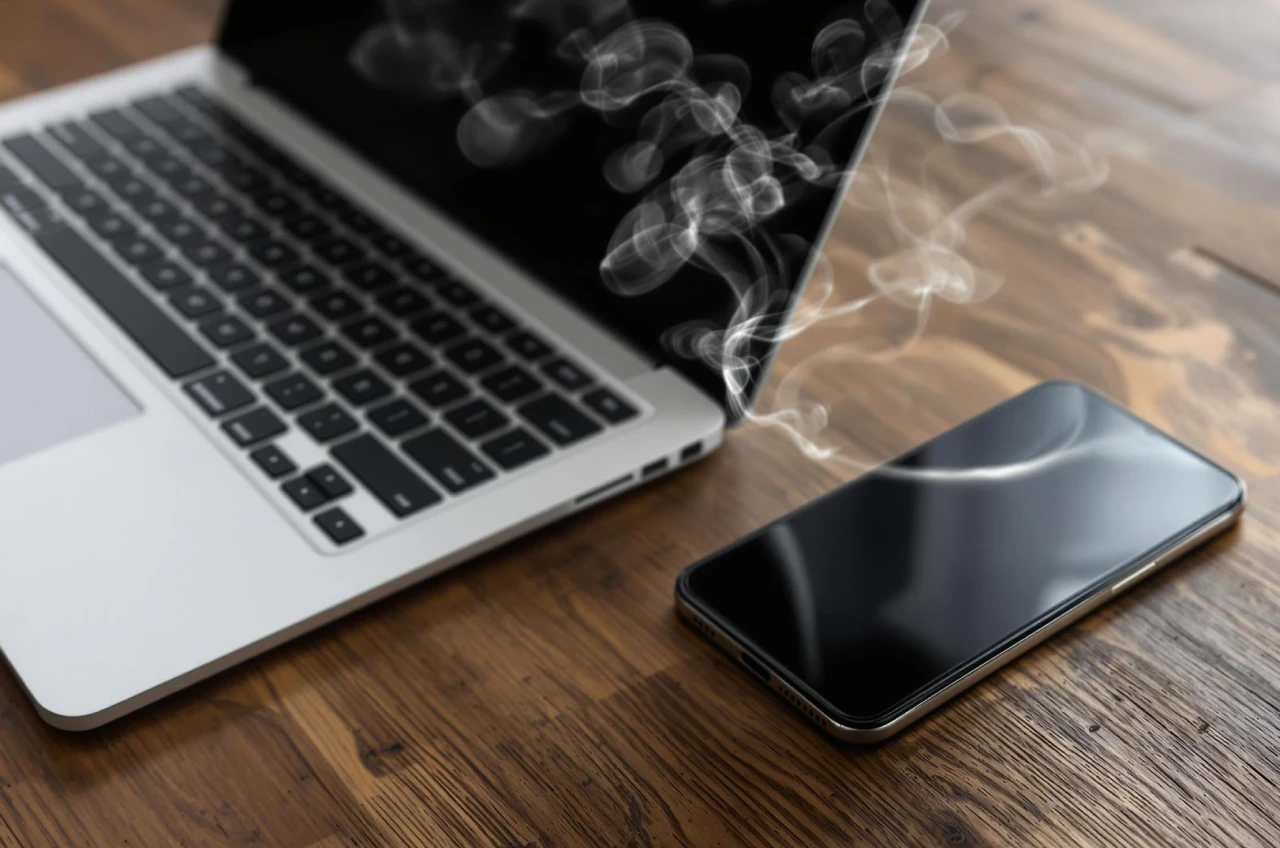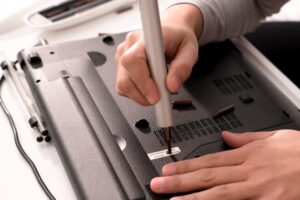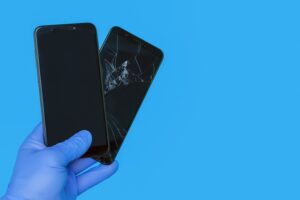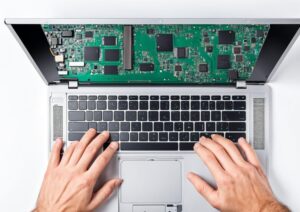THE overheating of notebooks and cell phones is a problem that many of us have faced. Have you noticed your device heating up more than usual? In this article, we will explore the main causes of this excessive heating, such as dust and the lack of ventilation can hinder cooling, in addition to signaling the signs that your equipment may be experiencing this problem. We will also give you valuable tips to avoid overheating and prolong the useful life of your device.
Main Points
- Keep your notebook and cell phone in cool places.
- Clean the air vents regularly.
- Avoid using the device on soft surfaces such as beds.
- Do not expose the device to direct sunlight.
- Disable apps you're not using to prevent overheating.
Common Causes of Laptop and Cell Phone Overheating
Understanding Overheating Devices
Have you ever noticed your laptop or cell phone getting hotter than it should? This could be a sign of overheating. When devices get too hot, they can start to malfunction or even stop working altogether. And that’s something no one wants to go through, right?
Factors that Contribute to Overheating of Notebooks and Cell Phones
There are several reasons that can lead to your devices overheating. Let’s take a look at some of the main factors:
- Overuse: If you are playing games or using heavy programs, this can make your device work harder and heat up.
- Ventilation problems: A laptop or cell phone needs good air circulation to stay cool. If the air vents are blocked, heat cannot escape.
- Accumulated dust: Dust inside your device can disrupt the functioning of the cooling system.
How Dust and Lack of Ventilation Affect Cooling
Dust is like a silent thief that can harm your laptop’s cooling. When dust builds up on fans and vents, it blocks the flow of fresh air. This causes heat to get trapped inside the device, increasing the temperature.
Here is a simple table to help you understand better:
| Factor | Effect on Cooling |
|---|---|
| Dust | Blocks ventilation |
| Lack of ventilation | Increases internal temperature |
| Overuse | Overloads the system |
If you notice your device is getting hot, it might be time to give it a clean and make sure nothing is blocking the air vents. This can make a big difference!
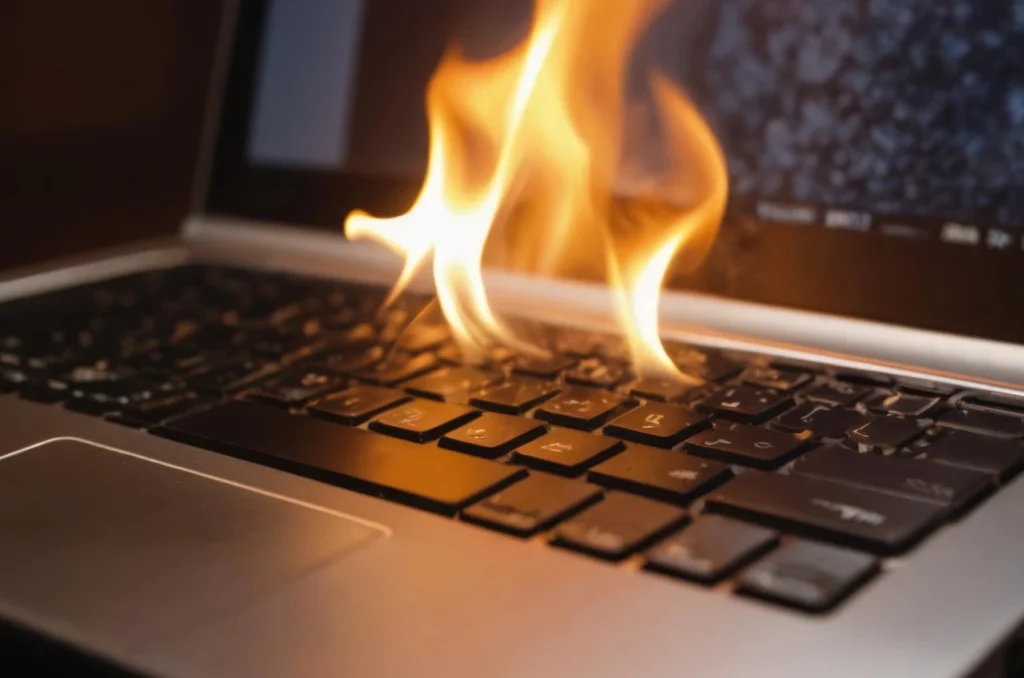
Signs That Your Device Is Overheating
How to Identify Overheating Problems in Laptops
Have you noticed that your laptop is running hotter than usual? This could be a sign of overheating. Here are some signs to keep an eye out for:
- Noisy fans: If you hear a loud noise, it could be that the fans are trying to cool your device.
- Slow performance: When your laptop starts to freeze or open programs slowly, this could be a sign that it is overheating.
- Sudden shutdowns: If it shuts down without warning, it's time to investigate.
Signs of Overheating in Cell Phones
Cell phones can also overheat, and there are some signs you should watch out for:
- Warm touch screen: If your cell phone screen is hot, it could be a warning sign.
- Fast battery drain: If the battery runs out quickly, even without heavy use, be careful.
- Apps closing by themselves: This can happen when the phone tries to protect itself from heat.
| Signs of Cell Phone Overheating | Description |
|---|---|
| Hot screen | The screen may be uncomfortable to touch. |
| Battery drains fast | The battery runs out faster than normal. |
| Apps close by themselves | Apps may close to prevent damage. |
What to Do When Your Device Gets Hot
If you notice that your device is hot, here are some tips to help:
- Turn off the device: Give it some time to cool down.
- Check the fans: Clean the fans and air intakes.
- Avoid using on soft surfaces: Using on beds or sofas may block ventilation.
Tips to Prevent Laptops and Cell Phones from Overheating
Regular Maintenance to Prevent Overheating
To prevent notebooks and cell phones from overheating, regular maintenance is essential. Here are some tips you can follow:
- Equipment Cleaning: Dust and dirt can build up in the fans and air intakes. Clean your device with a soft cloth and, if possible, use compressed air to remove dust.
- Software Updates: Keep your system and applications up to date. Updates may include performance improvements that help prevent overheating.
- Check the Battery: A damaged battery can cause overheating. If you notice that the battery is swollen or too hot, it's time to replace it.
Practical Solutions for Device Cooling
There are some practical solutions you can implement to keep your device cooler:
- Use of Refrigerated Base: For notebooks, a cooling pad can help dissipate heat. It's a simple and effective solution.
- Avoid Use on Soft Surfaces: Using your laptop on beds or sofas can block the air vents. Always use on hard surfaces.
- Disconnect Peripherals: Connected devices such as mice and printers can increase load and heat. Unplug them when not in use.

Simple Strategies to Extend the Life of Your Equipment
Here are some strategies that can help extend the life of your equipment and prevent overheating:
| Strategy | Description |
|---|---|
| Moderate Use | Avoid using your device for long periods without breaks. |
| Fresh Environment | Keep your device in a cool, ventilated environment. |
| Uninstalling Apps | Remove apps you don't use. They may be running in the background and heating up your device. |
By following these tips, you can prevent overheating and ensure that your laptop or cell phone runs at its best.
Conclusion
In summary, overheating of notebooks and cell phones is a problem that can be avoided with a few simple practices. Keeping your device clean, cool, and dust-free is essential to ensuring that it runs efficiently. Keep an eye out for signs that your device may be overheating, such as noisy fans and slow performance. By applying the tips we’ve discussed, you’ll not only extend the lifespan of your device, but you’ll also avoid future headaches. So, why not check out some of our other articles on our website? You can find more valuable tips at luctel.com.br!
Frequently Asked Questions
What causes laptops and cell phones to overheat?
Overheating in laptops and cell phones can be caused by several factors, including dust blocking the air vents, heavy use of applications and even environmental heat.
How can I tell if my laptop or cell phone is overheating?
You can tell if your device is overheating if it feels very hot to the touch. Also, watch out for sudden freezes or shutdowns.
What to do if my laptop or cell phone is overheating?
If your device is overheating, stop using it immediately. Leave it off for a while and place it in a cool place. Check for dirt and clean it.
Can overheating damage my laptop or cell phone?
Yes, overheating of notebooks and cell phones can damage internal components, leading to malfunctions or even total loss of the device.
How to prevent notebooks and cell phones from overheating?
To avoid overheating, keep your device clean, use it on hard surfaces, and avoid leaving it exposed to sunlight. Limit the use of heavy applications for long periods of time.

